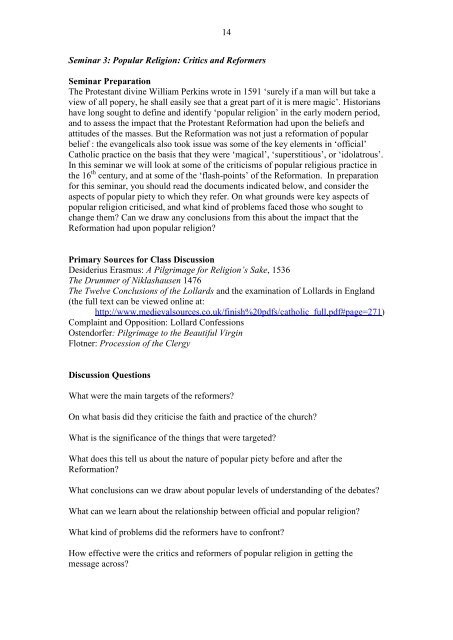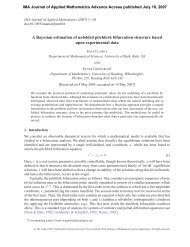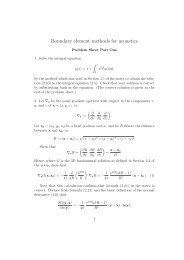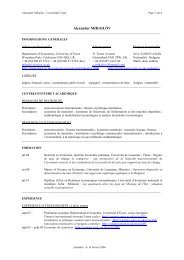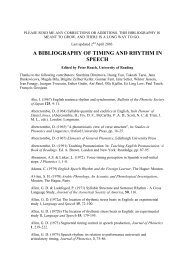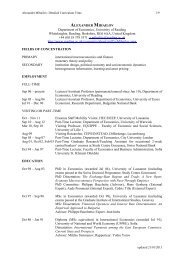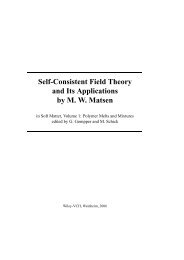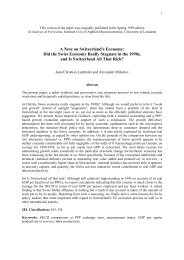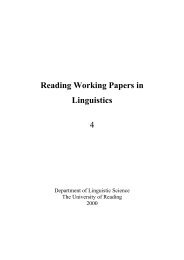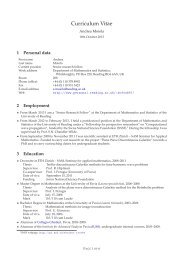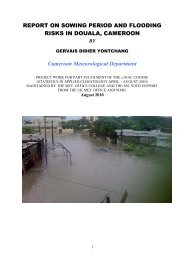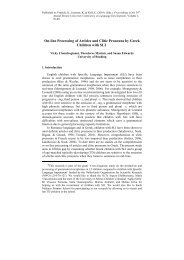Ritual, Myth and Magic in Early Modern Europe - University of Reading
Ritual, Myth and Magic in Early Modern Europe - University of Reading
Ritual, Myth and Magic in Early Modern Europe - University of Reading
You also want an ePaper? Increase the reach of your titles
YUMPU automatically turns print PDFs into web optimized ePapers that Google loves.
14<br />
Sem<strong>in</strong>ar 3: Popular Religion: Critics <strong>and</strong> Reformers<br />
Sem<strong>in</strong>ar Preparation<br />
The Protestant div<strong>in</strong>e William Perk<strong>in</strong>s wrote <strong>in</strong> 1591 ‗surely if a man will but take a<br />
view <strong>of</strong> all popery, he shall easily see that a great part <strong>of</strong> it is mere magic‘. Historians<br />
have long sought to def<strong>in</strong>e <strong>and</strong> identify ‗popular religion‘ <strong>in</strong> the early modern period,<br />
<strong>and</strong> to assess the impact that the Protestant Reformation had upon the beliefs <strong>and</strong><br />
attitudes <strong>of</strong> the masses. But the Reformation was not just a reformation <strong>of</strong> popular<br />
belief : the evangelicals also took issue was some <strong>of</strong> the key elements <strong>in</strong> ‗<strong>of</strong>ficial‘<br />
Catholic practice on the basis that they were ‗magical‘, ‗superstitious‘, or ‗idolatrous‘.<br />
In this sem<strong>in</strong>ar we will look at some <strong>of</strong> the criticisms <strong>of</strong> popular religious practice <strong>in</strong><br />
the 16 th century, <strong>and</strong> at some <strong>of</strong> the ‗flash-po<strong>in</strong>ts‘ <strong>of</strong> the Reformation. In preparation<br />
for this sem<strong>in</strong>ar, you should read the documents <strong>in</strong>dicated below, <strong>and</strong> consider the<br />
aspects <strong>of</strong> popular piety to which they refer. On what grounds were key aspects <strong>of</strong><br />
popular religion criticised, <strong>and</strong> what k<strong>in</strong>d <strong>of</strong> problems faced those who sought to<br />
change them? Can we draw any conclusions from this about the impact that the<br />
Reformation had upon popular religion?<br />
Primary Sources for Class Discussion<br />
Desiderius Erasmus: A Pilgrimage for Religion’s Sake, 1536<br />
The Drummer <strong>of</strong> Niklashausen 1476<br />
The Twelve Conclusions <strong>of</strong> the Lollards <strong>and</strong> the exam<strong>in</strong>ation <strong>of</strong> Lollards <strong>in</strong> Engl<strong>and</strong><br />
(the full text can be viewed onl<strong>in</strong>e at:<br />
http://www.medievalsources.co.uk/f<strong>in</strong>ish%20pdfs/catholic_full.pdf#page=271)<br />
Compla<strong>in</strong>t <strong>and</strong> Opposition: Lollard Confessions<br />
Ostendorfer: Pilgrimage to the Beautiful Virg<strong>in</strong><br />
Flotner: Procession <strong>of</strong> the Clergy<br />
Discussion Questions<br />
What were the ma<strong>in</strong> targets <strong>of</strong> the reformers?<br />
On what basis did they criticise the faith <strong>and</strong> practice <strong>of</strong> the church?<br />
What is the significance <strong>of</strong> the th<strong>in</strong>gs that were targeted?<br />
What does this tell us about the nature <strong>of</strong> popular piety before <strong>and</strong> after the<br />
Reformation?<br />
What conclusions can we draw about popular levels <strong>of</strong> underst<strong>and</strong><strong>in</strong>g <strong>of</strong> the debates?<br />
What can we learn about the relationship between <strong>of</strong>ficial <strong>and</strong> popular religion?<br />
What k<strong>in</strong>d <strong>of</strong> problems did the reformers have to confront?<br />
How effective were the critics <strong>and</strong> reformers <strong>of</strong> popular religion <strong>in</strong> gett<strong>in</strong>g the<br />
message across?


